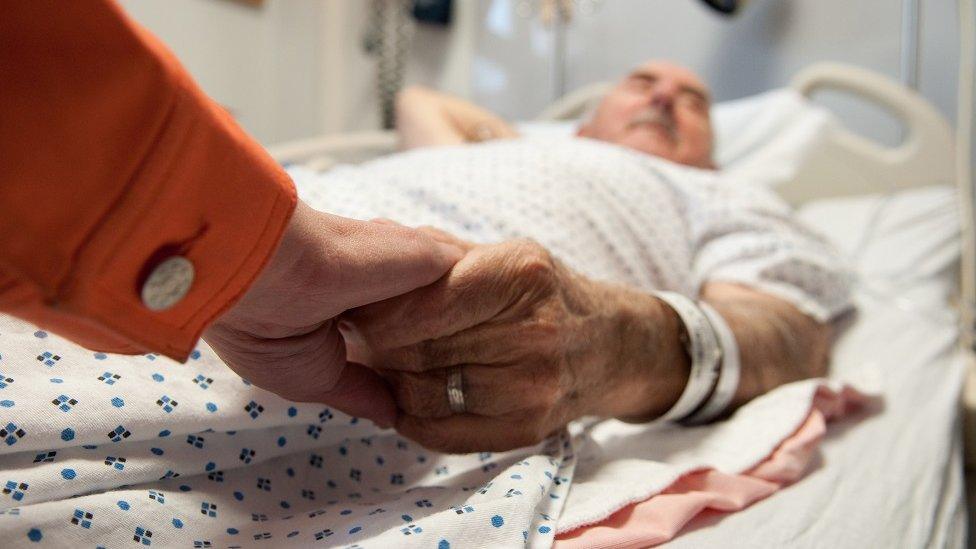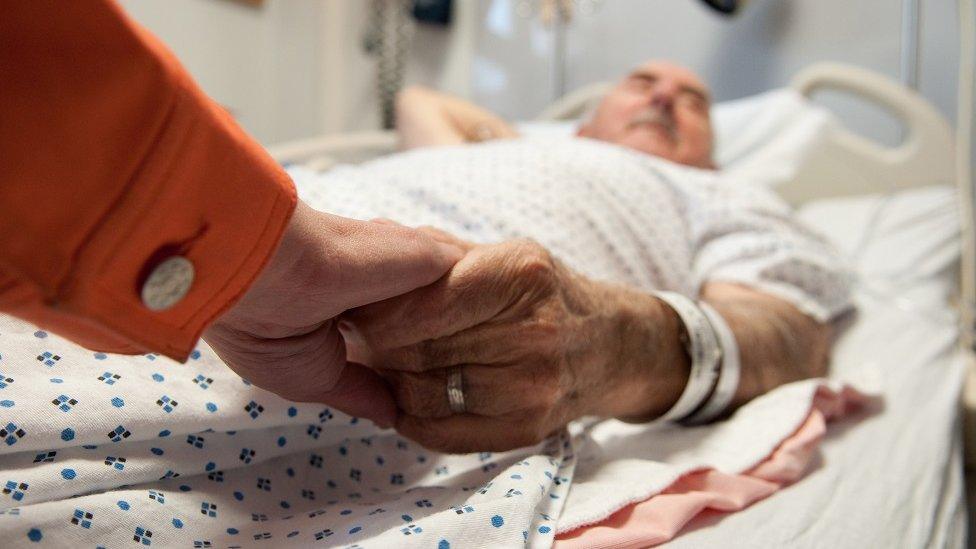Rural cancer patients 'less likely to survive' says study
- Published

People living rurally are 5% less likely to survive cancer than those in cities, according to a worldwide review by Aberdeen researchers.
With 20% of the global population estimated to be rural areas, the researchers looked at 39 studies carried out around the world.
They believe rural patients may delay seeking help until their symptoms seem more serious.
Transport infrastructure and health centre proximity are also highlighted.
A previous study by the Aberdeen team found that people in north east Scotland, northern Scotland and the Northern Isles who lived more than an hour away from a cancer treatment centre were more likely to die within the first year after their diagnosis than those who lived closer.
In the new follow-up research, 30 of the 39 studies looked at found a survival disadvantage for rural people.

Lead investigator Prof Peter Murchie, from the University of Aberdeen said: "A previous study showed the inequality faced by rural cancer dwellers in north east Scotland and we wanted to see if this was replicated in other parts of the world.
"We found that it is indeed the case and we think the statistic, that if you have cancer and live rurally anywhere in the world, you are 5% less likely to survive it, is quite stark.
"The task now is to analyse why this is the case and what can be done to close this inequality gap. In this paper we have considered some of the potential reasons but these must really be analysed in closer detail.
"The advancement of digital communications is producing new solutions but with more research it should be possible to identify other factors that contribute to this divide."
- Published6 October 2017

- Published25 April 2017
